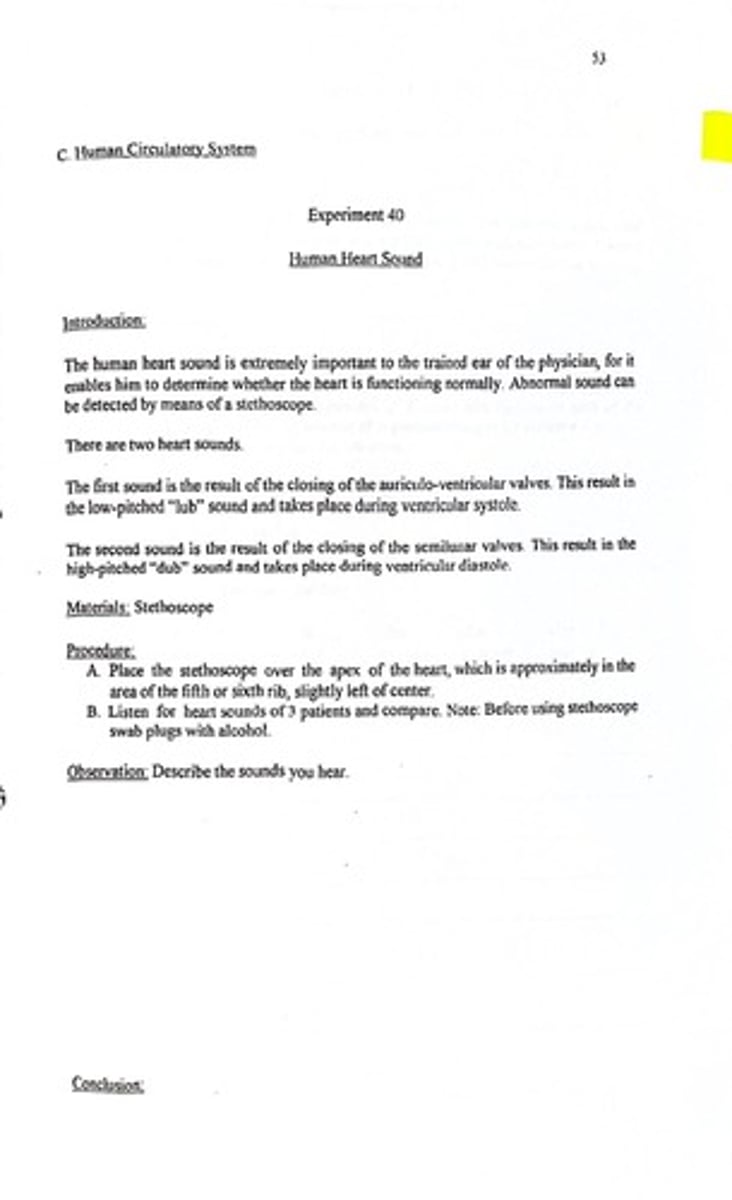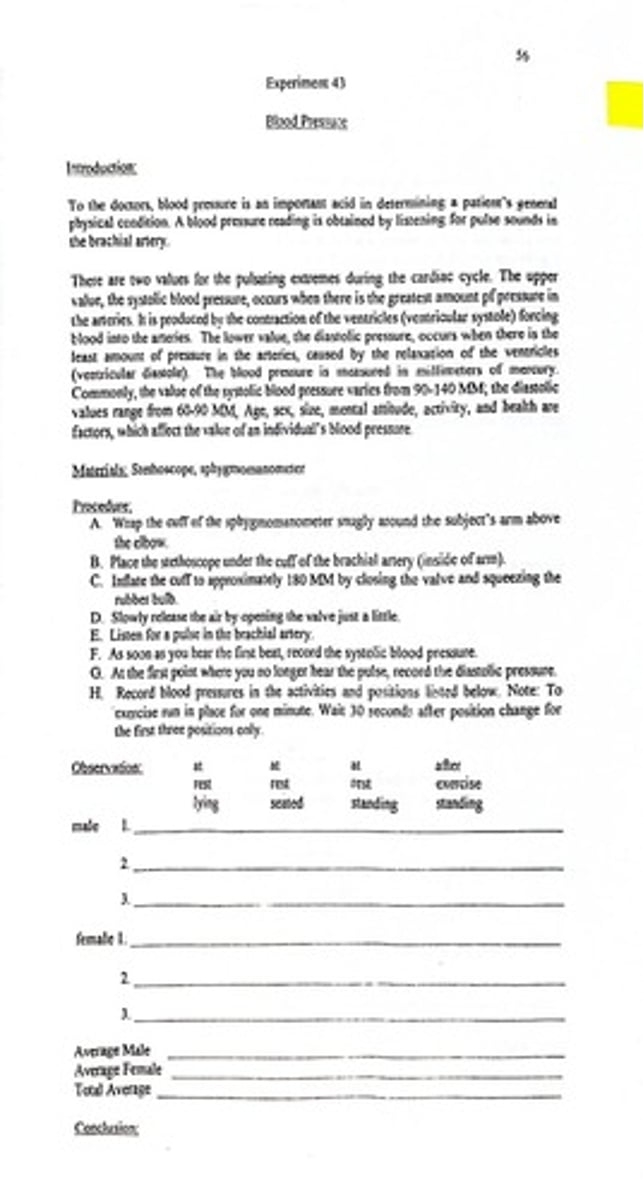Human Heart Sounds and Blood Pressure Measurement
1/20
There's no tags or description
Looks like no tags are added yet.
Name | Mastery | Learn | Test | Matching | Spaced |
|---|
No study sessions yet.
21 Terms
Heart Sound
Indicates heart function via stethoscope detection.

First Heart Sound
Low-pitched 'lub' from closing atrioventricular valves.
Second Heart Sound
High-pitched 'dub' from closing semilunar valves.
Ventricular Systole
Contraction phase of ventricles, produces systolic pressure.
Ventricular Diastole
Relaxation phase of ventricles, produces diastolic pressure.
Systolic Blood Pressure
Highest pressure during ventricular contraction, 90-140 mmHg.
Diastolic Blood Pressure
Lowest pressure during ventricular relaxation, 60-90 mmHg.
Stethoscope
Device used to listen to heart and pulse sounds.
Brachial Artery
Main artery in the arm for blood pressure measurement.
Sphygmomanometer
Instrument for measuring blood pressure in mmHg.
Pulse Sounds
Sounds indicating blood flow in arteries during heartbeat.
Cardiac Cycle
Sequence of events in one heartbeat, includes systole and diastole.
Atrioventricular Valves
Valves between atria and ventricles, close to create 'lub'.
Semilunar Valves
Valves at the exit of ventricles, close to create 'dub'.
Blood Pressure Reading
Measurement of pressure in arteries during cardiac cycle.
Factors Affecting Blood Pressure
Age, sex, size, activity, and health influence readings.
Procedure for Blood Pressure
Wrap cuff, inflate, listen for pulse changes.

Normal Blood Pressure Range
Systolic: 90-140 mmHg; Diastolic: 60-90 mmHg.
Heart Sound Observation
Listening for distinct sounds to assess heart health.
Patient Comparison
Evaluate heart sounds across multiple individuals.
Exercise Impact on Blood Pressure
Physical activity influences systolic and diastolic values.